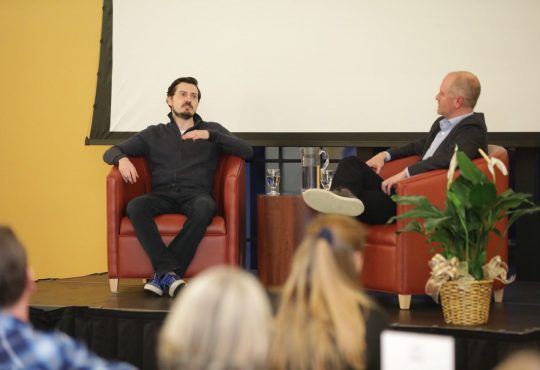When we think about investing, we imagine the New York Stock Exchange, a whirlwind of people shouting about points, a scene out of the movie Trading Places with Eddie Murphy. Most students think of investing as something that they will do much later in their lives. Perhaps some students don’t think about investing at all. However, investing is a great way to save up for the future.
First and foremost what is investing?
Investing is essentially using money or capital you have and giving it to an organization or project with the expectation of future income or profit.
“I think the stock market is a way for common people to lend money to businesses they support. And in return the company returns the investment with more money,” senior Melissa Pellman said.
With some help from Chris Smith, former VP at Hewlett Packard, author, and Puget Sound alum, investing will be much simpler.
Imagine a bathtub. The water coming out of the faucet is our income and the water going down the drain is our expenses. Our bathtub also has an imaginary dotted line labeled “that’s enough,” which essentially means that we have made enough money and have financial freedom. The way to fill up your bathtub is by managing your income and expenses—do not spend what you do not have.
The best part is that we have complete authority and control as to how much money is going out and how much we choose to save and invest. At the bare minimum, we should put 10 percent of our income into savings.
Investing is a way to reach that dotted line faster.
“Investing is a smart way to put money aside that you’re not going to spend. It’s like a savings account but you’ll get more money than you would from a bank,” Pellman said.
What type of investing should students participate in?
There are three types of investing: short-term, medium-term and long-term investing. The one college students should care about is long-term investing. Long-term investing is investing in a company for decades and the goal is to have financial freedom. It’s money that you invest and you “forget about it.” When done in a certain way, long term investing creates no risk. You need diversification and time. Investing in a variety of companies in a variety of industries minimizes your risk because each company and industry will react differently to events and have different results. Over time, your risk of loss shrinks and the longer you hold onto your shares, the higher your return will be because you will be getting what you invested plus some.
You have to pay taxes on income, but because the government wants to encourage people to save and invest, they created tax advantages. These tax advantages come in the form of 401-Ks through employers or IRAs if one is self-employed (there are others depending on the field of work.) The catch is that you cannot touch the money until you reach the age of 59.5. Yes, 59.5 years old. Smith recommends that before putting any of the earnings from the investments in a 401-K that you save them as an emergency fund.
Smith also recommends a Roth IRA, which is perfect for students interested in long-term investing because it creates wealth without paying taxes. By using a Roth IRA calculator, you can find out how much money you will have by the time you retire.
For example if you put in $5000 at the age of 21 and add no more money, by the time you are 65 you will have $98, 142. However, if you put $5,000 and contribute $5,000 annually for a total contribution of $220,000, by the time you are 65 you will have $1,521,889.
An interesting app that has recently come out is called “Acorns.” The app allows you to invest your spare change in Index Fund Stocks. It customizes a portfolio for you based on your age, time horizon (the length of time between the time of purchase and sale), income goals, and risk tolerance.
“Acorns” allows individuals who maybe are not ready to invest in a Roth IRA get a taste of what investing is like.
As college students, it can be hard to think about our future finances, but it is important that we begin to at least learn about what investing is. Additionally, we should familiarize ourselves with the accounting world and how it works. With this information, we can make informed decisions about our finances that can have great positive effects for the future.

